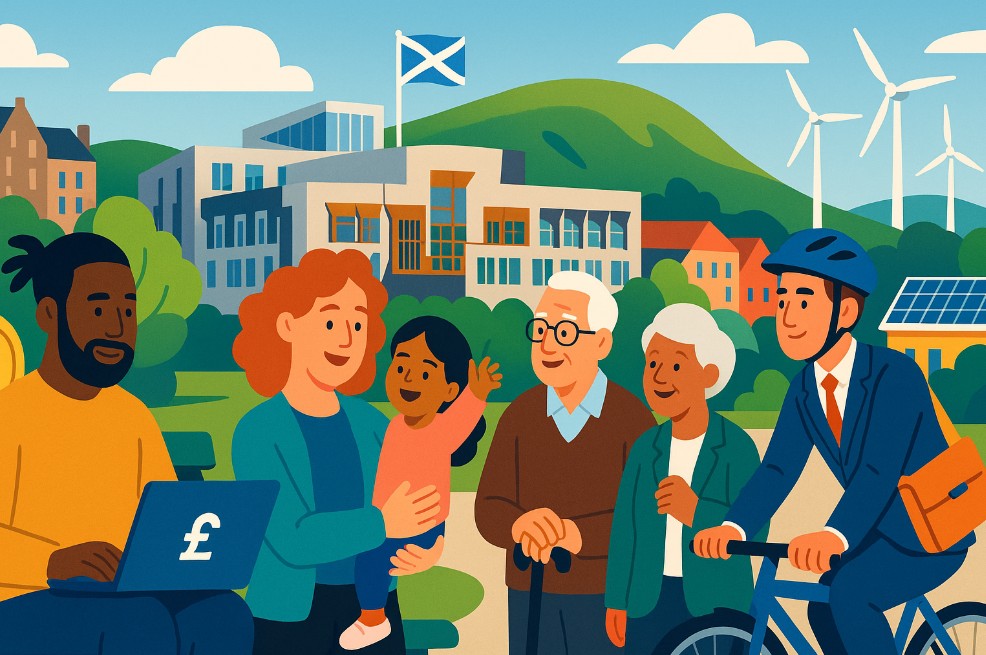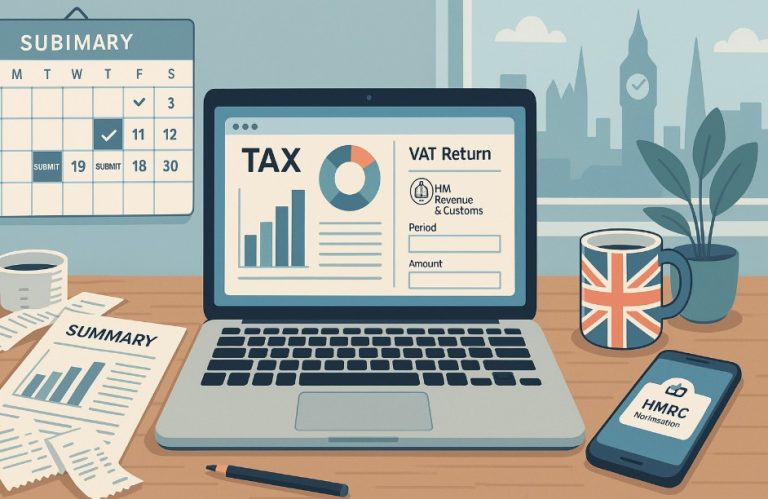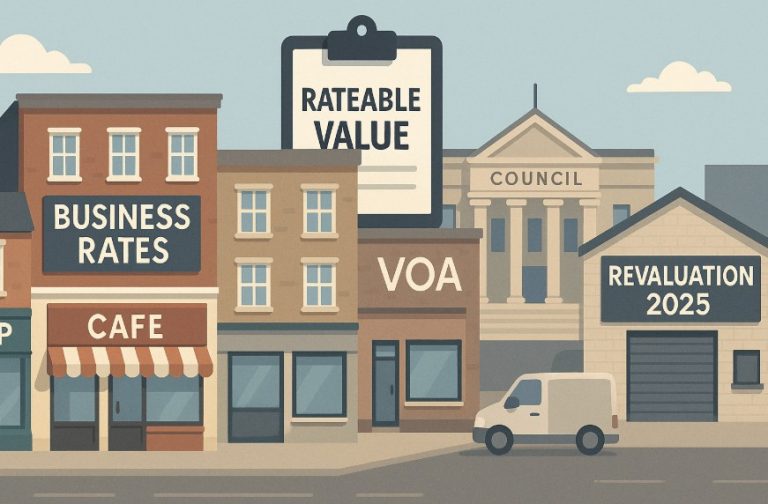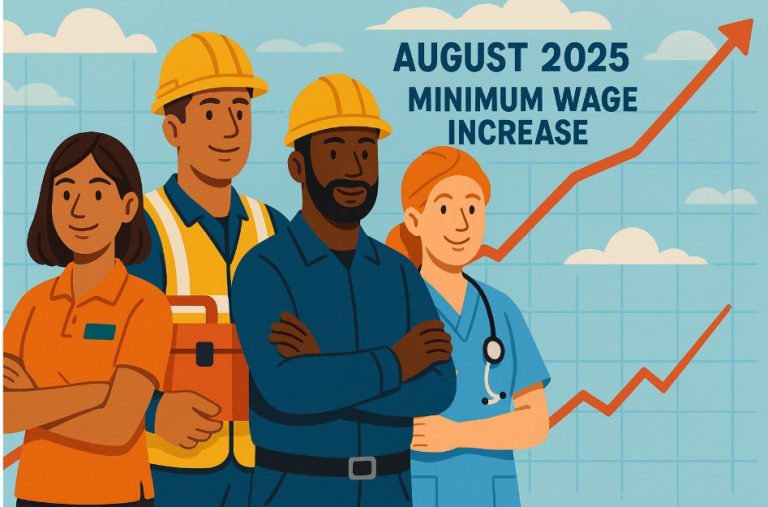Scotland Minimum Income Guarantee – Everything You Need To Know
How can a society ensure that every individual has access to a decent standard of living, no matter their background, employment status or personal circumstances? What would it mean for a country to enshrine financial dignity as a right rather than a privilege?
In Scotland, these questions are no longer theoretical. The idea of a Minimum Income Guarantee (MIG) is gaining political and public traction as a transformative policy response to poverty, inequality and economic insecurity.
A recent final report by the Minimum Income Guarantee Expert Group has laid out a bold, phased roadmap to implement this idea, aiming for full rollout by 2036.
Backed by a growing coalition of researchers, government bodies and advocacy organisations, including IPPR Scotland, the MIG is seen not simply as another benefit or welfare scheme, but as a reimagining of the social contract.
It aligns with Scotland’s broader ambitions around fair work, inclusive growth, and the transition to a wellbeing economy.
What Is the Scotland Minimum Income Guarantee?

The Minimum Income Guarantee is a policy framework designed to ensure that everyone in Scotland receives a minimum level of income that enables them to live with dignity, security and choice.
It is not a flat payment to every citizen unlike a Universal Basic Income, but a means-tested and targeted guarantee that tops up income where necessary to reach a minimum standard.
This model is intended to interact with and improve upon the existing welfare system, providing a stable foundation rather than last-resort crisis intervention.
MIG is not a poverty mitigation strategy alone it is about enabling people to thrive, contribute and plan for their futures with confidence.
The guiding principle is simple: no one should fall below a defined income threshold. That threshold would be informed by benchmarks such as the Minimum Income Standard, developed by the Joseph Rowntree Foundation, which reflects what the public agrees is required for a decent standard of living in the UK.
Why Has the MIG Become a Priority for Scotland?
Scotland continues to face entrenched levels of poverty and income inequality, compounded by the rising cost of living, housing insecurity, precarious work, and gaps in social care.
The COVID-19 pandemic exposed the fragility of many households’ financial positions, and subsequent economic shocks have only worsened conditions for thousands across the country.
The final report from the Minimum Income Guarantee Expert Group asserts that financial insecurity inflicts long-term harm on individuals, families and communities. The group argues that now is the time to shift from piecemeal interventions to a comprehensive, systemic solution.
The MIG is positioned as a central pillar in Scotland’s ambition to create a fairer, more inclusive economy, especially as the country moves towards a low-carbon future.
The policy is also seen as vital for responding to demographic changes, such as an ageing population and the evolving nature of work due to automation and digital transformation.
How Will the MIG Be Implemented Over Time?

The roadmap set out by the Expert Group advocates for a phased, long-term implementation strategy.
Early steps involve the rollout of time-limited Minimum Income Guarantees in specific communities, followed by incremental increases in income thresholds and coverage as capacity grows.
A key component of the strategy is the creation of an independent Minimum Income Guarantee Commission, which would be responsible for advising on payment levels, eligibility criteria, and rollout logistics.
The group recommends using a step-by-step approach, balancing affordability, institutional capacity, and public engagement.
Roadmap Summary: From Pilots to Full Rollout
| Phase | Description |
| Initial Pilots | Localised, time-limited guarantees to test systems and outcomes |
| Intermediate Scaling | Raising the minimum income level and expanding coverage to more groups |
| Full MIG Implementation | Universal income floor for all eligible residents, no time limit |
| Beyond 2036 Vision | MIG integrated into the social contract alongside NHS, education, housing |
The roadmap is grounded in the principle that poverty should be fleeting, rare, and non-damaging, and that the state has a duty to guarantee basic income security as a right.
How Will the MIG Interact With Work, Wages and the Economy?
Critics often worry that enhanced social support could discourage work. However, the Expert Group’s report argues the opposite that dignified income support and fair employment must work hand in hand.
A strong MIG system can make work more accessible, more meaningful, and more secure, especially when paired with reforms to the labour market.
The MIG proposal is embedded in a broader strategy to transform Scotland’s economic model toward inclusive growth and fair work. This includes efforts to:
- Improve minimum employment conditions
- Support career progression and flexible working
- Strengthen the enforcement of labour rights
The policy also encourages the creation of tripartite economic frameworks, inspired by successful systems in countries like Denmark.
These frameworks involve cooperation between the government, employers, and trade unions to set fair sectoral wages and conditions. Over time, this could stabilise labour markets and raise the baseline for decent work.
Crucially, the MIG aims to create income stability that encourages people to explore education, caregiving, volunteering and entrepreneurship, not to disengage from the labour market but to participate more fully and freely.
Can a Minimum Income Guarantee Be Financially Sustainable?
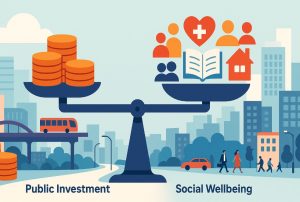
Concerns around cost and sustainability are natural when discussing a policy of this scale. The report acknowledges that fiscal pressures will shape the pace of implementation.
However, it emphasises that MIG should be seen as a public investment rather than a cost one that protects the social fabric, reduces demand on crisis services, and contributes to healthier, more resilient populations.
As the economy evolves, particularly in the transition to a low-carbon model, the MIG can offer support to workers moving between sectors or acquiring new skills.
This investment is expected to yield long-term savings in health, justice, and social care budgets.
The Scottish Government may pursue a combination of funding strategies, including progressive taxation, reallocation of existing welfare budgets, and collaboration with UK-wide benefit systems or calls for increased devolution powers.
How Will Universal Basic Services Support MIG?
A key innovation in the MIG vision is the integration of Universal Basic Services (UBS) a model that provides essentials either for free or at a cost aligned with income levels.
The more services available through public provision, the less pressure there is on direct cash payments, improving overall financial security and reducing inequality.
The report outlines proposals for services such as:
- Energy Allowances: Households receive a basic energy allowance, with higher users paying more. This is tailored for disabled people or others with higher energy needs.
- Transport Subsidies: Individuals could access a free or subsidised travel allowance for buses, trains or rideshares, reducing cost barriers to employment or care responsibilities.
- Childcare and Social Care: Expanded and fully-funded services to enable parental leave, job flexibility, and support for unpaid carers.
The strategy promotes shared responsibility and community solidarity, moving away from the stigma of welfare and towards collective provision of social infrastructure.
What Will the MIG Payment System Look Like?
The Expert Group recommends a streamlined and transparent payment model, designed to maximise ease of access while preserving responsiveness to individual circumstances.
Key features would include:
| Feature | Description |
| Payment Structure | A single core entitlement, with supplementary payments for housing and disability |
| Assessment Frequency | Based on a three-month average income to reduce fluctuations and stress |
| Flexibility and Automation | PAYE recipients are assessed automatically; others declare income periodically |
| Integrated System | Consolidates Universal Credit, legacy benefits, and the Scottish Child Payment |
Under this system, no household would be worse off, and all would benefit from greater stability, predictability, and clarity.
How Will the MIG Address Housing and High-Cost Needs?

Housing is among the biggest expenses for Scottish households and is closely tied to poverty. The MIG roadmap includes a separate housing payment, tapered according to income and entitlement.
The goal is to ensure that losing a job or facing illness does not also risk losing one’s home.
Eligibility for housing support would be assessed independently but harmonised with the MIG taper system. The payment would help renters, mortgage holders and those with fluctuating incomes maintain their homes while regaining financial footing.
Could Scotland’s MIG Become a Model for the UK and Beyond?
If fully implemented, the Scotland Minimum Income Guarantee could redefine how governments around the world approach social security.
It combines targeted income support, public services, labour market reform, and technological innovation in a holistic framework designed to deliver dignity and economic participation. This is not merely a poverty-reduction scheme it is a national vision for financial justice and inclusive growth.
FAQs About the Scotland Minimum Income Guarantee
How is the Minimum Income Guarantee different from Universal Basic Income?
MIG is targeted based on need and income levels, while UBI provides an equal payment to everyone regardless of circumstances.
When will the MIG be implemented?
Initial pilot schemes are expected within the next few years, with full implementation targeted for 2036, depending on outcomes and funding.
Will MIG replace Universal Credit?
Yes, over time. The MIG is intended to replace Universal Credit and related benefits with a simpler, more effective and dignified system.
Will people still be encouraged to work under MIG?
Yes. The system is designed with tapered withdrawal rates to ensure that work remains rewarding. It also supports flexible, part-time and caregiving roles.
What services will support the MIG?
Universal Basic Services like energy allowances, public transport support, and childcare will be expanded to reduce household costs and enhance financial resilience.
How will the MIG be funded?
Possible funding sources include progressive taxation, reallocation of existing welfare budgets, and collaboration with the UK Government or expanded devolved powers.
What role will technology play in delivering MIG?
The system will use automation where appropriate, reducing the burden on applicants and ensuring payments are timely, accurate and responsive to changes.

